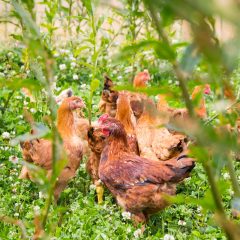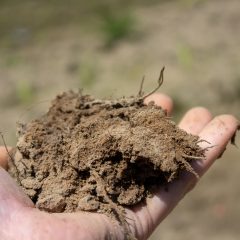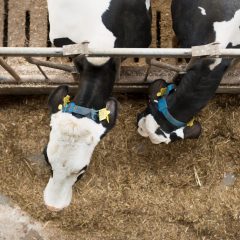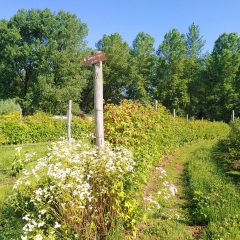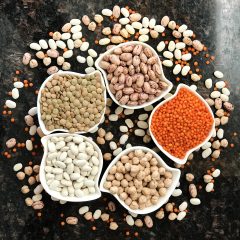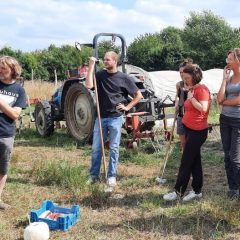Dossier Short chain
- Local food strategies
- Market forces
- Business model
- Farm management
- Chain
- Organic agriculture
- Short chain
- On-farm processing
- Market concept
The short chain is getting the wind in its sails, and global crises, such as the COVID-19 pandemic, are unexpected catalysts. Citizens are becoming increasingly involved in the food system and the role agriculture plays in it. Consumers find their way to the farm store and the local farmer. They recognize the added value of seasonal and nearby food and are more aware of the people and the story behind their food. ILVO conducts research into how the economic profitability of this revenue model can be optimized.
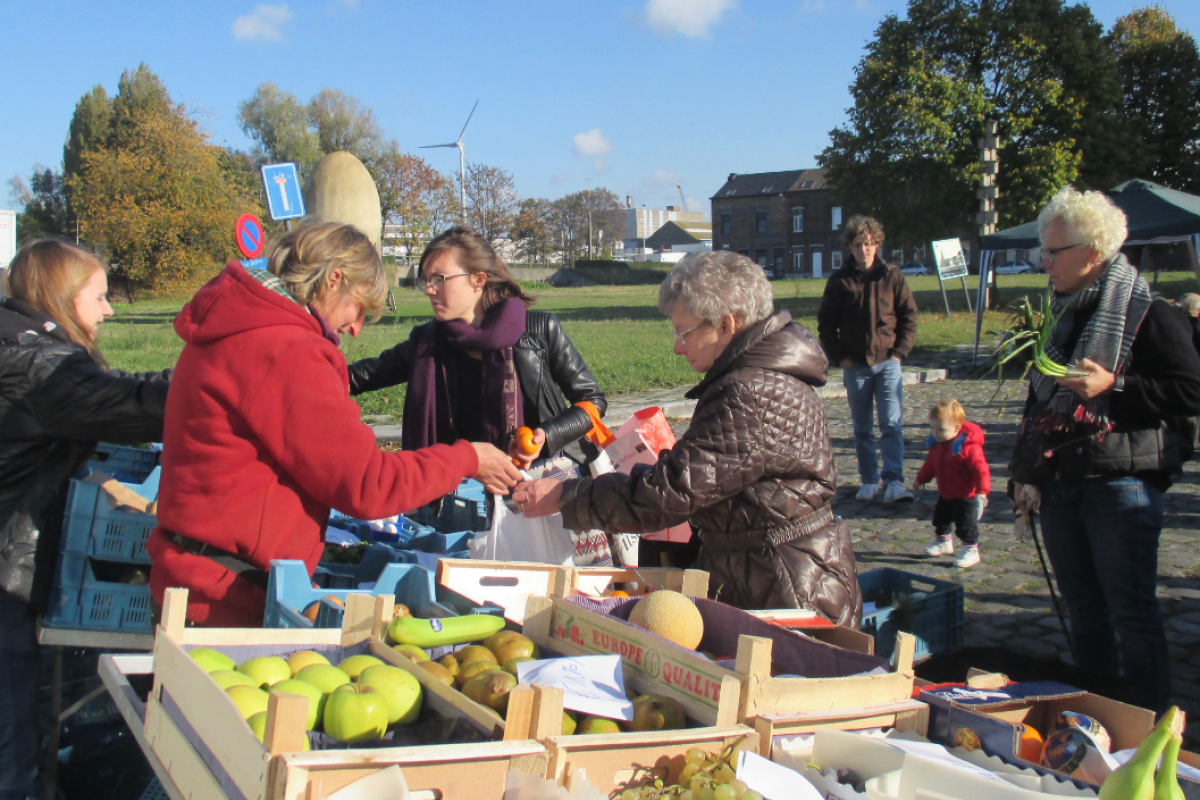
What does ILVO do?
-
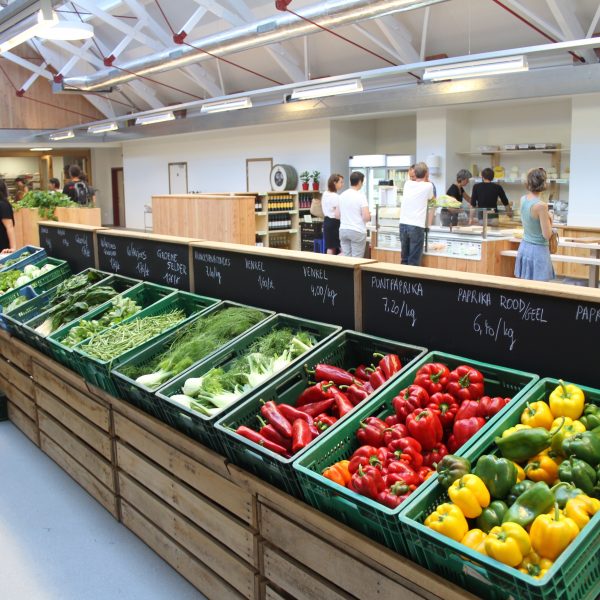 The main drivers for an economically sustainable and profitable business management are studied and turned into a number of practical tools.
The main drivers for an economically sustainable and profitable business management are studied and turned into a number of practical tools. -
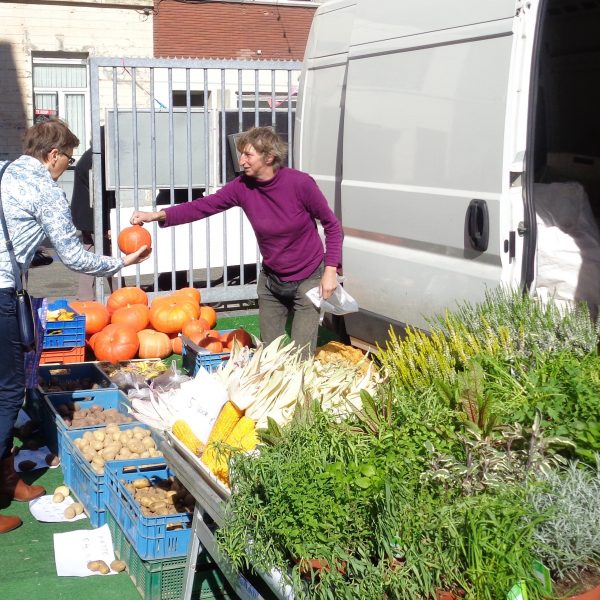 ILVO studies the potential of new types of collaboration where short-chain farming is embedded into new networks.
ILVO studies the potential of new types of collaboration where short-chain farming is embedded into new networks. -
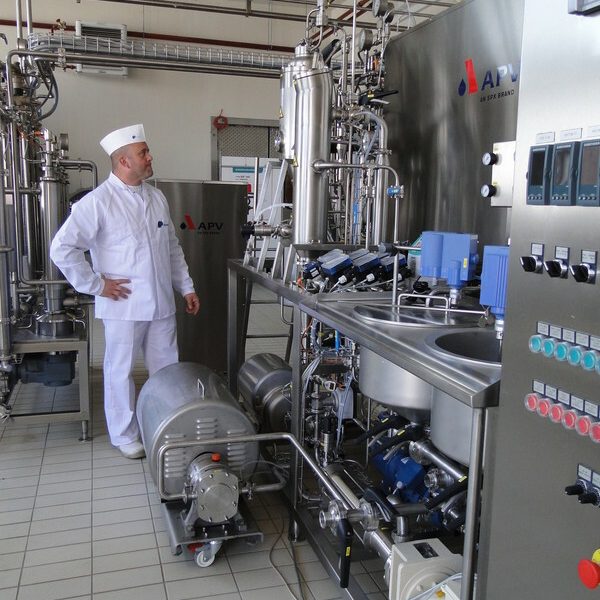 In the Food Pilot ILVO gives advices about production processes, recipes and equipment, with small-scale testing of new products..
In the Food Pilot ILVO gives advices about production processes, recipes and equipment, with small-scale testing of new products..
Answers on this page:
- What is the short chain?
- Kan the short chain become a profitable business model in the long term?
- What is meant by ‘innovative multi-actor partnerships’?
- Structural collaboration with short-chain farms
- Processing for the short chain
What is the short chain?
The short chain includes strongly locally-anchored agricultural and food businesses that are not intensely interwoven in vertical and horizontal chains. There are different types of short-chain initiatives, such as farm sales, vending machine sales, food teams, pick-your-own farms, and Community Supported Agriculture (CSA). They are characterized by several common characteristics as defined in the Short Chain Strategic Vision:
- consumer involvement,
- a limited number of links are used,
- the producer has a say in price-setting,
- it has a local character (economic, ecological, social),
- there is consumer contact with the people involved in farming.
Can the short chain be a profitable business model in the long term?
In times of crisis, such as the COVID-19 pandemic, the vulnerability of the global food chain and the need for a resilient and sustainable food system is often highlighted. In the same breath, the need for a more local embedding of our food supply is frequently referred to, and the ‘short chain’ is put forward as a valid, sustainable, and resilient alternative to the ‘traditional’ food chain.
It is, therefore, worthwhile to investigate what is so specific about the short chain and why a potentially high level of resilience is attributed to this food system. The identification of resilience components of a short-chain system, such as the presence of a social network or the diversity of sales channels, can provide an answer.
But as with other types of businesses, the short chain also shows a great diversity of business results. After all, it is not because a company intrinsically meets the conditions for resilience that it is also economically sustainable. The decisive drivers of an economically profitable business ideally have a reinforcing effect on the resilience components and the combination of both potentially leads to economic sustainability and long-term profitability. The drivers and the resilience components therefore, both crucial and inseparable.
ILVO carries out practical research into the various local food systems and strategies that can actually be implemented. This research is done with and for farmers and involved actors in the market and society in order to fully realize the potential and added value of the short chain. This added value must be expressed in the economic, ecological, and social dimensions that can be created from short-chain agriculture and in the role of various actors. Through its research, ILVO tries to contribute explicitly to the optimization of the short chain as a revenue model. In this sense, this research is relevant to policy, the sector, and the farmers and their businesses. In addition to the short chain, ILVO also conducts research into numerous other business models and hopes to ensure livelihood security and a stable income for farmers and growers.
What is meant by innovative, multi-actor partnerships?
Short-chain farming is not necessarily limited to a transaction between 1 farm and 1 end consumer. Sometimes, partnerships between multiple actors can fit perfectly into the short-chain story.
For example, the short chain does not always focus only on the end consumer. Schools, hospitals, the hospitality industry, and industrial kitchens can also choose to work with short-chain products. Often, however, short chains have not yet penetrated the DNA, let alone the kitchens, of these organizations. Many are unfamiliar with the specificity of agriculture or still focus strongly on providing meals as cost-efficiently as possible. Researching, informing, and creating support around the conditions for integrating short chains are, therefore, central to ILVO research. The focus can be on organizational structure, logistics, marketing, and differentiation strategies.
But ILVO is also researching the potential of new partnerships in which short-chain agriculture is embedded in new networks. New chains from field to fork – such as a local bread or meat chain, in which a small number of players create added value in dialogue and transparency – form a new anchor point in the landscape of the short chain where there is a need for research into the conditions for innovative partnerships.
Structural collaborations with short-chain farms
ILVO wants to deliver relevant and applied research for all forms of agriculture. ILVO has an extensive research infrastructure, with 90 buildings, 200 hectares of trial fields, 20,000 m² of greenhouses, and 15,000 m² of animal housing. However, in the current situation, ILVO is not able to conduct research on CSA farms or goat farms, for example. Therefore, a research partnership was set up to intensify partnership with short-chain businesses. By entering into a structural partnership with these businesses, ILVO expands the research area and the research infrastructure.
Processing for the short chain
An important strategy for creating added value in the short chain is to include on-farm processing.
ILVO has strong expertise in processing food, and also helps farmers and growers with questions about the processing of their primary products into farm products. This may involve the production of their ice cream, juices, butcher products, and many other food products. This assistance is provided both in case of problems and in the development of a new product. Everything is done confidentially. And thanks to the KRATOS subsidy, this advice – worth 1500 euros – is free of charge. Request advice from ILVO and we will lead you to the KRATOS e-Desk.
In its Food Pilot, ILVO – in cooperation with Flanders’ FOOD – offers advice on production processes and recipes. Advice on recipes, production equipment, preparation for the FASFC, layout of the production area, and cleaning instructions is provided. In addition, pilot productions can be tested on small production equipment, from 5 to 500 L or kg, in the experimental food factory. These test samples can be tasted, and allow the production process to be optimized. Shelf life and nutritional value can be measured (for labeling) in the labs, and the taste evaluation can be checked via the consumer sensory testing panel.
A few Food Pilot success stories:
- Kortenboshoeve is a dairy farm with a farm store and its own artisanal production of cheese, butter, buttermilk, rice pudding, yogurt, and ice cream. They asked for advice on the nutritional values that should be stated on the label. Nutritional value tables were calculated for various dairy products, including rice pudding, pudding, yogurt, and artisanal ice cream.
- Slegershof is a fruit and vegetable grower, with a farm store and its own processing of jam, honey, and soup. They received advice on the shelf life and safety of processed vegetables in glass jars.
- Hoeveslagerij De Nil is a pork and cattle farm, with its own boning and butcher shop with meats, cold cuts, and prepared dishes. They received advice on the shelf life of their cold cuts.

